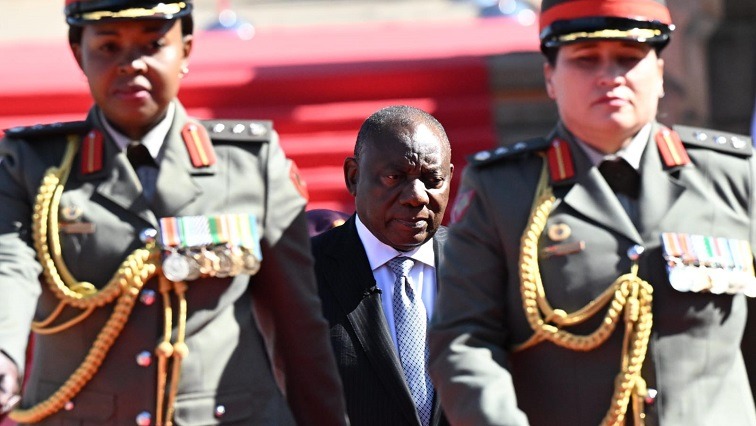Despite the country waiting on President Cyril Ramaphosa to announce his new cabinet, the government continues to run.
This all thanks to Director-Generals of departments. The political executive of the sixth administration ceased to exist on Wednesday, last week, when Ramaphosa took his oath of office at his inauguration in Pretoria.
SABC News looks at the different arrangements in place to ensure a seamless transition of the business of government.
In terms of the Constitution, following the dissolution of Parliament, cabinet continues to function until the election of the next National Assembly, which elects a new President who then will appoints a new cabinet.
Currently South Africa has been without a cabinet since Wednesday when President Ramaphosa took his oath of office.
Professor Mashupye Maserumule of the Tshwane University of Technology explains.
“The Constitution says that the National Executive Authority of the republic is vested in the President, however, the President exercises that authority in consultation with ministers who must make the cabinet but as we speak now, we don’t have ministers. It will therefore mean that the President is hampered in many ways in exercising the National Executive authority. When we talk about the National Executive authority, we in simple terms talk about the obligation of government to drive the affairs of the state as it relates to the delivery of services.”
Despite having no cabinet, the administration of public services has not ceased as the Director-Generals continue to work during this transitional period.
“A default arrangement in terms of making sure that government continues to run is on the Director-Generals, although they are not really part of the political leadership. So, we have the President as we speak, we have the Director- Generals. By the way when you look at the powers that the Director-Generals wield in law are so enormous and are so important to an extent that in fact they are key in terms of making sure that the country continues their administrative powers. And the extent to which they can go are clearly defined in law, are defined in the Constitution and therefore should they go beyond the bounds of what they can do obviously. They will face consequences.”
Maserumule says while the current arrangement is not ideal, it is necessary given the moment South Africa finds itself in.
“Ministers ought to provide policy direction, Director Generals ought to translate the political policy direction as provided by the minister into strategic and implementable plans. So, there is a difference between the role that ministers play and the role Director-Generals play. However, you need to appreciate that the President is yet to announce his cabinet and one will understand that he talks about a government of national unity which will obviously include political parties that ordinarily would not be part of the scope of consultation for the purposes of constituting a cabinet.”
Before the ANC was only duty bound to consult with their tripartite partners namely, Cosatu and the SACP.
Maserumule says for now, the time spent in engagements ahead of a cabinet announcement has not been unreasonable, but it is desirable to get it done to restore government’s normal functionality.
Meanwhile, the ANC has announced that 10 political parties with seats in the National Assembly have signed the Government of National Unity (GNU) Statement of Intent.
The parties are the ANC, DA, PA, IFP, GOOD, FF Plus, UDM, Rise Mzansi, PAC and Al Jama-ah.
The ANC says the 10 parties secured over 70% of the vote in the 2024 elections thus ensuring broad representativity and a strong mandate to govern.
In a statement, the party says any further parties wishing to join the GNU will be subject to Clause 24 of the Statement of Intent, which states that there be discussion and agreement amongst the existing parties, whenever new parties want to be part of the GNU.
SABC News Politics Editor Mzwandile Mbeje shares more on this:

